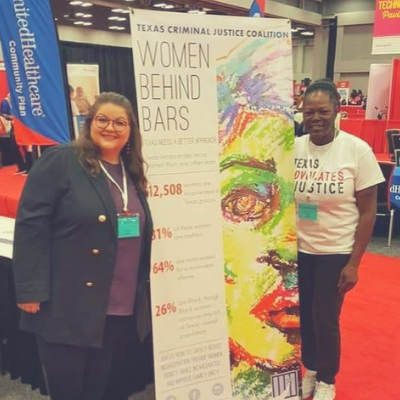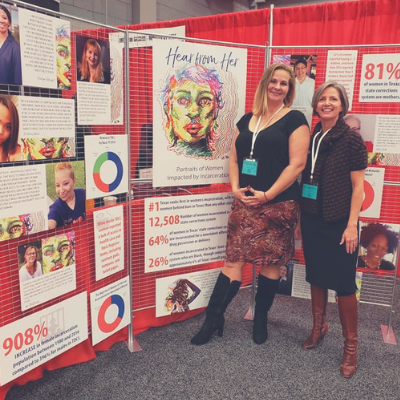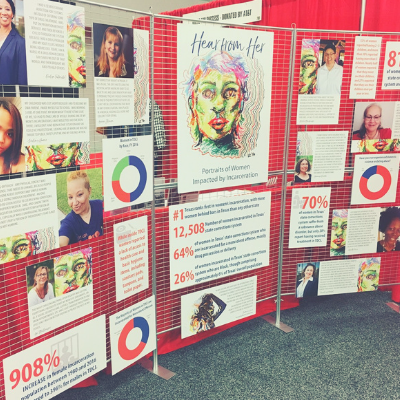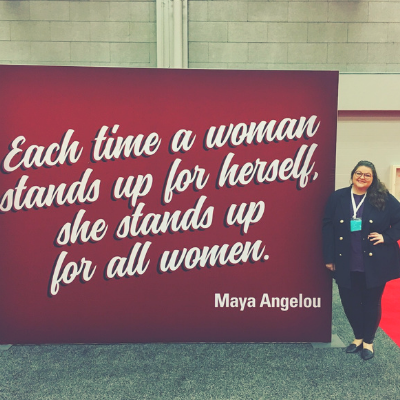
If you’re familiar with our “Justice for Women” campaign, then you probably already know that Texas incarcerates more women than any other state in the country. You might also know the number of women in Texas’ criminal justice system has grown 908% since 1980.
The vast majority of women in Texas prisons are mothers. Nearly all of them have significant trauma histories—with 58% reporting having been sexually abused as a child, and 82% reporting having experienced domestic violence or dating abuse. Most women are incarcerated for nonviolent—predominately drug-related—offenses. Black women, who comprise only 6% of Texas’ overall population, represent 26% of women incarcerated.
These statistics are indicative of Texas’ failure to adequately account for the root causes of incarceration among women: a lack of quality, affordable treatment for mental health issues or substance use disorder; a lack of trauma recovery centers in communities most impacted by crime and violence; and a general lack of investment in people over prisons.
The mass incarceration of women impacts families and communities in a tremendous way. So, when I learned about the Texas Conference for Women—a gathering of around 7,000 women from across the state for connection, motivation, networking, inspiration, and skill building—I knew women’s justice had to be a part of the conversation. It seemed unacceptable for a women’s conference of such size to be happening right here in Texas’ capital city without acknowledging the absolute crisis that is impacting our most vulnerable women.
Luckily, the Conference organizers agreed! TCJC was thrilled to host an exhibit featuring data and stories from our “Justice for Women” campaign, alongside Katie Ford (Executive Director, Truth Be Told), Lauren Johnson (Criminal Justice Outreach Coordinator, ACLU of Texas), and Annette Price (Statewide Coordinator, Texas Advocates for Justice).
We talked with hundreds of attendees about the importance addressing the drivers of women into incarceration—especially substance abuse, mental health issues, past victimization, and poverty—as well as the importance of treating incarcerated women with dignity and preparing them for a safe, successful reentry back into the community. Taking these steps can stop the cycle of re-offending and re-incarceration that comes at great expense to taxpayers, families, and communities.
To learn more about our “Justice for Women” campaign, visit www.texascje.zocalodesign.com/womens-justice.
To donate to the cause, visit www.texascje.zocalodesign.com/donate! Every dollar helps!
And to stay up-to-date on our efforts to advance policy reforms that will better serve system-involved women, sign up to receive our e-alerts at www.texascje.zocalodesign.com/sign-receive-our-emails.
Photos From the Event




